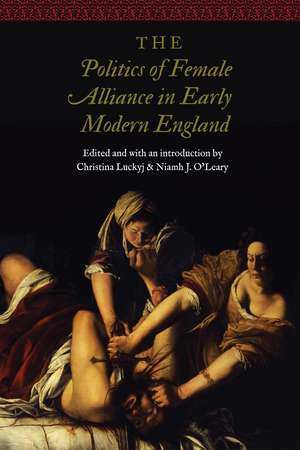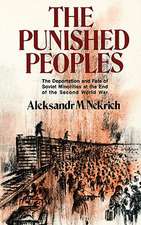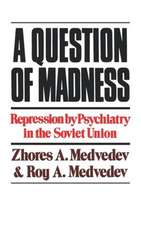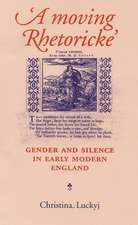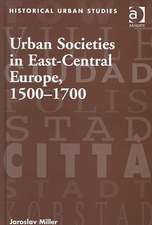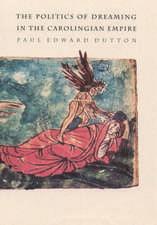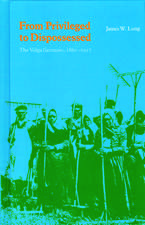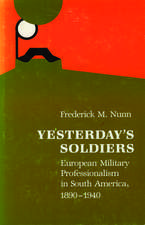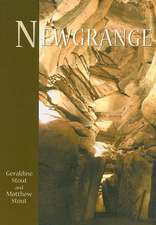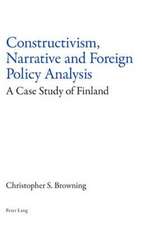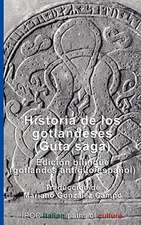The Politics of Female Alliance in Early Modern England: Women and Gender in the Early Modern World
Editat de Christina Luckyj, Niamh J. O'Learyen Limba Engleză Hardback – 30 noi 2017
2018 Best Collaborative Project from the Society for the Study of Early Modern Women
In the last thirty years scholarship has increasingly engaged the topic of women’s alliances in early modern Europe. The Politics of Female Alliance in Early Modern England expands our knowledge of yet another facet of female alliance: the political. Archival discoveries as well as new work on politics and law help shape this work as a timely reevaluation of the nature and extent of women’s political alliances.
Grouped into three sections—domestic, court, and kinship alliances—these essays investigate historical documents, drama, and poetry, insisting that female alliances, much like male friendship discourse, had political meaning in early modern England. Offering new perspectives on female authors such as the Cavendish sisters, Anne Clifford, Aemilia Lanyer, and Katherine Philips, as well as on male-authored texts such as Romeo and Juliet, The Winter’s Tale, Swetnam the Woman-Hater, and The Maid’s Tragedy, the essays bring both familiar and unfamiliar texts into conversation about the political potential of female alliances.
Some contributors are skeptical about allied women’s political power, while others suggest that such female communities had considerable potential to contain, maintain, or subvert political hierarchies. A wide variety of approaches to the political are represented in the volume and the scope will make it appealing to a broad audience.
In the last thirty years scholarship has increasingly engaged the topic of women’s alliances in early modern Europe. The Politics of Female Alliance in Early Modern England expands our knowledge of yet another facet of female alliance: the political. Archival discoveries as well as new work on politics and law help shape this work as a timely reevaluation of the nature and extent of women’s political alliances.
Grouped into three sections—domestic, court, and kinship alliances—these essays investigate historical documents, drama, and poetry, insisting that female alliances, much like male friendship discourse, had political meaning in early modern England. Offering new perspectives on female authors such as the Cavendish sisters, Anne Clifford, Aemilia Lanyer, and Katherine Philips, as well as on male-authored texts such as Romeo and Juliet, The Winter’s Tale, Swetnam the Woman-Hater, and The Maid’s Tragedy, the essays bring both familiar and unfamiliar texts into conversation about the political potential of female alliances.
Some contributors are skeptical about allied women’s political power, while others suggest that such female communities had considerable potential to contain, maintain, or subvert political hierarchies. A wide variety of approaches to the political are represented in the volume and the scope will make it appealing to a broad audience.
Din seria Women and Gender in the Early Modern World
-
 Preț: 225.10 lei
Preț: 225.10 lei - 19%
 Preț: 364.64 lei
Preț: 364.64 lei - 9%
 Preț: 1037.58 lei
Preț: 1037.58 lei -
 Preț: 289.11 lei
Preț: 289.11 lei - 8%
 Preț: 397.62 lei
Preț: 397.62 lei - 18%
 Preț: 1054.71 lei
Preț: 1054.71 lei - 18%
 Preț: 1004.68 lei
Preț: 1004.68 lei - 18%
 Preț: 1054.71 lei
Preț: 1054.71 lei - 18%
 Preț: 1055.06 lei
Preț: 1055.06 lei - 31%
 Preț: 764.20 lei
Preț: 764.20 lei - 26%
 Preț: 764.20 lei
Preț: 764.20 lei - 18%
 Preț: 1001.84 lei
Preț: 1001.84 lei - 18%
 Preț: 1000.27 lei
Preț: 1000.27 lei - 28%
 Preț: 497.08 lei
Preț: 497.08 lei - 18%
 Preț: 1000.27 lei
Preț: 1000.27 lei -
 Preț: 369.73 lei
Preț: 369.73 lei - 18%
 Preț: 1056.63 lei
Preț: 1056.63 lei - 28%
 Preț: 826.01 lei
Preț: 826.01 lei - 18%
 Preț: 1053.92 lei
Preț: 1053.92 lei - 31%
 Preț: 765.84 lei
Preț: 765.84 lei - 28%
 Preț: 819.48 lei
Preț: 819.48 lei - 18%
 Preț: 1113.63 lei
Preț: 1113.63 lei - 31%
 Preț: 767.07 lei
Preț: 767.07 lei - 31%
 Preț: 766.99 lei
Preț: 766.99 lei - 18%
 Preț: 1058.69 lei
Preț: 1058.69 lei -
 Preț: 369.73 lei
Preț: 369.73 lei - 19%
 Preț: 234.90 lei
Preț: 234.90 lei - 18%
 Preț: 1061.81 lei
Preț: 1061.81 lei - 31%
 Preț: 766.85 lei
Preț: 766.85 lei - 18%
 Preț: 1060.25 lei
Preț: 1060.25 lei - 28%
 Preț: 735.34 lei
Preț: 735.34 lei - 18%
 Preț: 1000.27 lei
Preț: 1000.27 lei - 18%
 Preț: 1061.81 lei
Preț: 1061.81 lei - 18%
 Preț: 1061.06 lei
Preț: 1061.06 lei - 28%
 Preț: 876.07 lei
Preț: 876.07 lei - 18%
 Preț: 1064.70 lei
Preț: 1064.70 lei - 18%
 Preț: 1107.61 lei
Preț: 1107.61 lei - 28%
 Preț: 737.63 lei
Preț: 737.63 lei - 18%
 Preț: 1068.15 lei
Preț: 1068.15 lei - 18%
 Preț: 1061.06 lei
Preț: 1061.06 lei - 18%
 Preț: 1000.76 lei
Preț: 1000.76 lei - 28%
 Preț: 819.84 lei
Preț: 819.84 lei - 18%
 Preț: 1109.18 lei
Preț: 1109.18 lei - 28%
 Preț: 821.53 lei
Preț: 821.53 lei - 18%
 Preț: 1000.27 lei
Preț: 1000.27 lei - 28%
 Preț: 827.75 lei
Preț: 827.75 lei - 18%
 Preț: 1122.62 lei
Preț: 1122.62 lei
Preț: 495.15 lei
Nou
Puncte Express: 743
Preț estimativ în valută:
94.76€ • 102.89$ • 79.60£
94.76€ • 102.89$ • 79.60£
Carte tipărită la comandă
Livrare economică 23 aprilie-07 mai
Preluare comenzi: 021 569.72.76
Specificații
ISBN-13: 9781496201997
ISBN-10: 149620199X
Pagini: 288
Ilustrații: Index
Dimensiuni: 152 x 229 x 24 mm
Greutate: 0.59 kg
Editura: Nebraska
Colecția University of Nebraska Press
Seria Women and Gender in the Early Modern World
Locul publicării:United States
ISBN-10: 149620199X
Pagini: 288
Ilustrații: Index
Dimensiuni: 152 x 229 x 24 mm
Greutate: 0.59 kg
Editura: Nebraska
Colecția University of Nebraska Press
Seria Women and Gender in the Early Modern World
Locul publicării:United States
Notă biografică
Christina Luckyj is a professor of English, gender, and women’s studies at Dalhousie University. She is the author of “A Moving Rhetoricke”: Gender and Silence in Early Modern England and The Duchess of Malfi: A Critical Guide. Niamh J. O’Leary is an associate professor of English at Xavier University.
Cuprins
Acknowledgments
Editors’ Introduction
Part 1. The Politics of Women’s “Domestic” Alliances
1. Distaff Power: Plebeian Female Alliances in Early Modern England
Bernard Capp
2. Between Women: Slanderous Speech and Neighborly Bonds in Henry Porter’s The Two Angry Women of Abington
Ronda Arab
3. The Political Role of the Gossip in Swetnam the Woman-Hater, Arraigned by Women
Megan Inbody
4. Virtual and Actual Female Alliance in The Maid’s Tragedy and The Tamer Tamed
Niamh J. O’Leary
5. Failed Alliances and Miserable Marriages in Katherine Philips’s Letters
Elizabeth Hodgson
Part 2. Women’s Alliances and the Politics of the Court
6. Performing Patronage, Crafting Alliances: Ladies’ Lotteries in English Pageantry
Elizabeth Zeman Kolkovich
7. Tyrants, Love, and Ladies’ Eyes: The Politics of Female-Boy Alliance on the Jacobean Stage
Roberta Barker
8. Her Advocate to the Loudest: Arbella Stuart and Female Courtly Alliance in The Winter’s Tale
Alicia Tomasian
9. Not Sparing Kings: Aemilia Lanyer and the Religious Politics of Female Alliance
Christina Luckyj
Part 3. The Politics of Female Kinship
10. Shakespeare Revises Juliet, the Nurse, and Lady Capulet in Romeo and Juliet
Steven Urkowitz
11. Crossing Generations: Female Alliances and Dynastic Power in Anne Clifford’s Great Books of Record
Jessica L. Malay
12. Exilic Inspiration and the Captive Life: The Literary / Political Alliances of the Cavendish Sisters
Jennifer Higginbotham
13. Afterword
Susan Frye and Karen Robertson
Contributors
Index
Editors’ Introduction
Part 1. The Politics of Women’s “Domestic” Alliances
1. Distaff Power: Plebeian Female Alliances in Early Modern England
Bernard Capp
2. Between Women: Slanderous Speech and Neighborly Bonds in Henry Porter’s The Two Angry Women of Abington
Ronda Arab
3. The Political Role of the Gossip in Swetnam the Woman-Hater, Arraigned by Women
Megan Inbody
4. Virtual and Actual Female Alliance in The Maid’s Tragedy and The Tamer Tamed
Niamh J. O’Leary
5. Failed Alliances and Miserable Marriages in Katherine Philips’s Letters
Elizabeth Hodgson
Part 2. Women’s Alliances and the Politics of the Court
6. Performing Patronage, Crafting Alliances: Ladies’ Lotteries in English Pageantry
Elizabeth Zeman Kolkovich
7. Tyrants, Love, and Ladies’ Eyes: The Politics of Female-Boy Alliance on the Jacobean Stage
Roberta Barker
8. Her Advocate to the Loudest: Arbella Stuart and Female Courtly Alliance in The Winter’s Tale
Alicia Tomasian
9. Not Sparing Kings: Aemilia Lanyer and the Religious Politics of Female Alliance
Christina Luckyj
Part 3. The Politics of Female Kinship
10. Shakespeare Revises Juliet, the Nurse, and Lady Capulet in Romeo and Juliet
Steven Urkowitz
11. Crossing Generations: Female Alliances and Dynastic Power in Anne Clifford’s Great Books of Record
Jessica L. Malay
12. Exilic Inspiration and the Captive Life: The Literary / Political Alliances of the Cavendish Sisters
Jennifer Higginbotham
13. Afterword
Susan Frye and Karen Robertson
Contributors
Index
Recenzii
"This volume is more than a collection; it is itself a conversation about where early modern feminist scholarship might "go" next. These chapters perform an extraordinary service, each in its own special expertise, embracing dramatic and poetic performance, the sociology of both collective labor and disruptive competition."—Naomi Conn Liebler, Early Modern Women: An Introductory Journal
“An excellent exploration of the ways that politics—writ large—resonated and were represented in literary and dramatic productions in early modern England. Together the authors make a compelling case that the political dimensions of women’s alliances are deserving of more scholarly attention, as they figured largely in the intellectual and cultural worlds of the period and as they have been, up to this point, underexplored by scholars.”—Amanda Herbert, assistant director at the Folger Institute and author of Female Alliances: Gender, Identity, and Friendship in Early Modern Britain
